Zebrafish
-

Vanderbilt-led team discovers new genetic disease and defines underlying mechanism
An international research team has discovered a new genetic syndrome caused by mutation of a single gene and named it CATIFA, an acronym for its core symptoms. Read MoreJan 13, 2020
-
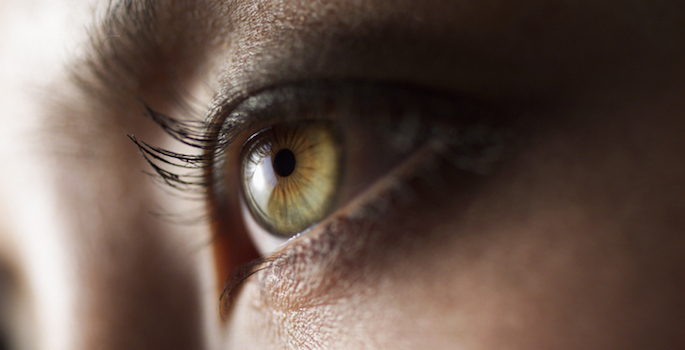
Zebrafish aid effort to regenerate damaged retinas
According to a new study, the tiny zebrafish may hold the secret to regenerating damaged retinas in humans. Read MoreSep 5, 2019
-

A cataract-heart connection
Studies of alpha-B crystallin in zebrafish could ultimately lead to improved treatment for cataracts and heart disease. Read MoreJan 25, 2018
-

Fish eyes may hold key to regenerating human retinas
Research into retinal regeneration in zebrafish has identified a signal that appears to trigger the self-repair process, raising the possibility of inducing retinal repair in human eyes. Read MoreMar 9, 2017
-

Fat hormone’s role in zebrafish
The hormone leptin regulates glucose balance, but not fat stores, in zebrafish. Read MoreMar 8, 2016
-

In a zebrafish’s eye
Vanderbilt investigators demonstrate that a certain eye lens protein is evolutionarily conserved between zebrafish and rat, suggesting that zebrafish can be used as a model system to understand eye lens disorders such as cataracts. Read MoreJul 29, 2015
-

A “CRISPR” way to study disease
Using revolutionary CRISPR technology, Vanderbilt investigators have developed a fast and simple method to simultaneously turn off multiple genes in order to study complex diseases. Read MoreJun 11, 2015
-
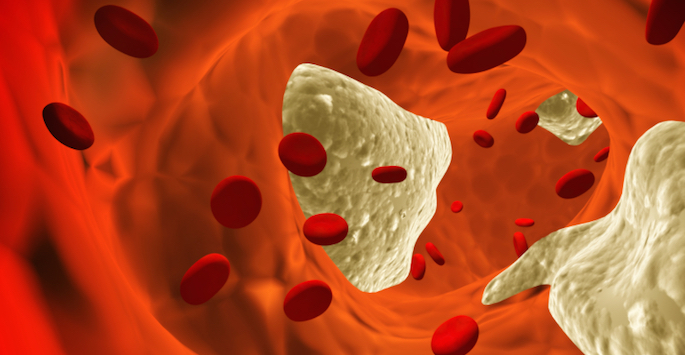
VU team explores new cholesterol processing pathway
A zebrafish model of a rare genetic disease has revealed an unexpected regulatory pathway for cholesterol absorption and processing. Read MoreApr 23, 2015
-

Cancer signaling pathway blocker
Researchers at Vanderbilt University have discovered a new way to inhibit Hedgehog (Hh) signaling, an important regulatory pathway for vertebrate development – and cancer. Read MoreApr 3, 2015
-

Tiny model of diabetes
Vanderbilt University researchers have created a zebrafish model of skeletal muscle insulin resistance that could help improve diabetes treatment. Read MoreFeb 20, 2015
-
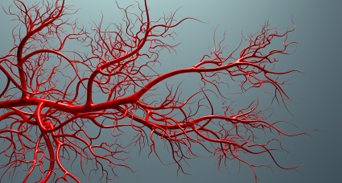
Targeting tumor “supply lines”
A metabolic enzyme plays a crucial role in vascular development and may be a good target for cancer therapies. Read MoreDec 18, 2013
-

Fishing for new anti-cancer drugs
Vanderbilt investigators used an in vivo screen in zebrafish to identify a potential new anti-cancer drug. Read MoreSep 18, 2013
-
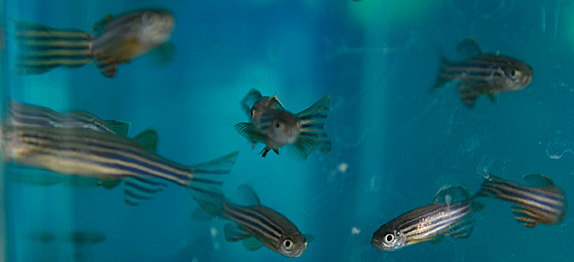
Model for MADD mitochondrial disease
A zebrafish model of a severe mitochondrial disease will be useful for developing new therapeutic approaches. Read MoreJul 11, 2013
-

Setting traps to probe gene function
A new method for creating genetic mutations that can be activated at certain times or in specific tissues will enable studies to probe gene function. Read MoreOct 18, 2012
-
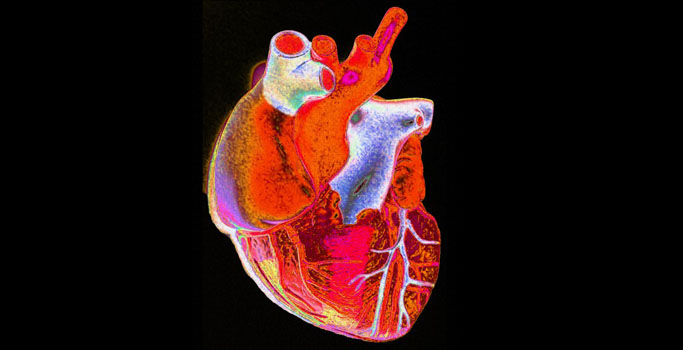
New tool hooks heart failure drugs
A new screening tool – using glowing fish embryos – could identify therapeutics for myocardial hypertrophy and heart failure. Read MoreApr 6, 2012
-

Fishing for heart attack repair tools
Managing myocardial infarction – and the resulting heart failure – remains a clinical challenge. To search for chemicals that can stimulate cardiac muscle cell production, Vanderbilt Institute of Chemical Biology investigators led by Tao Zhong, Ph.D., Terri Ni, Ph.D., and Eric Rellinger, M.D., turned to a novel drug discovery tool:… Read MoreJan 5, 2012
-

Clues to skeletal form in ‘feelgood’ fish
Ela Knapik, associate professor of medicine, and colleagues are using zebrafish to explore the molecular and cellular mechanisms that cause birth defects of the face and skeleton. Read MoreDec 16, 2011
-

Fishing for a new model of tuberous sclerosis complex
A zebrafish model of the genetic disease tuberous sclerosis complex will speed new discoveries. Read MoreApr 27, 2011